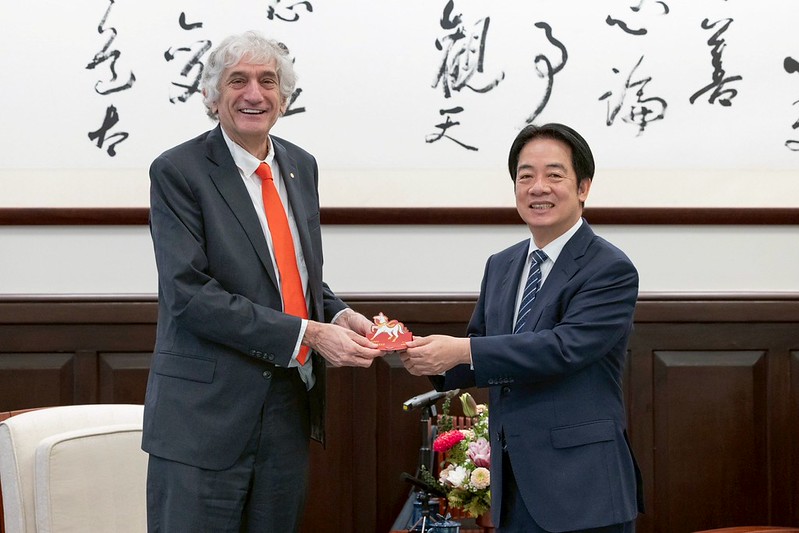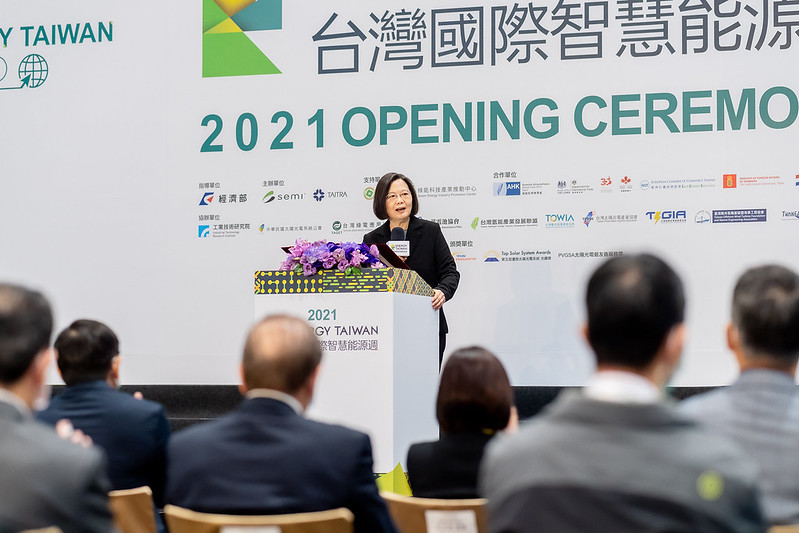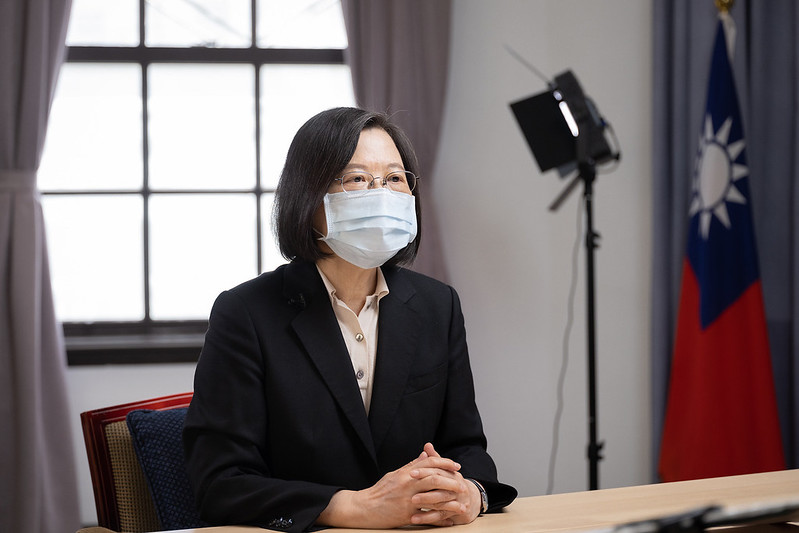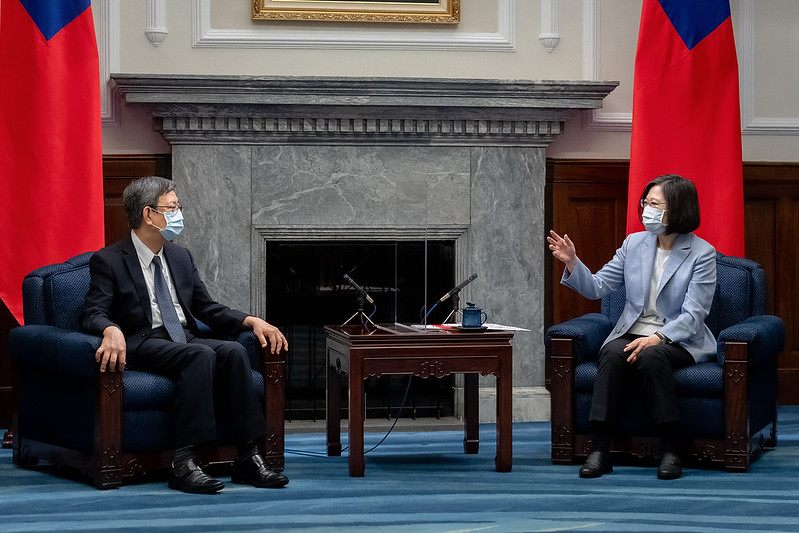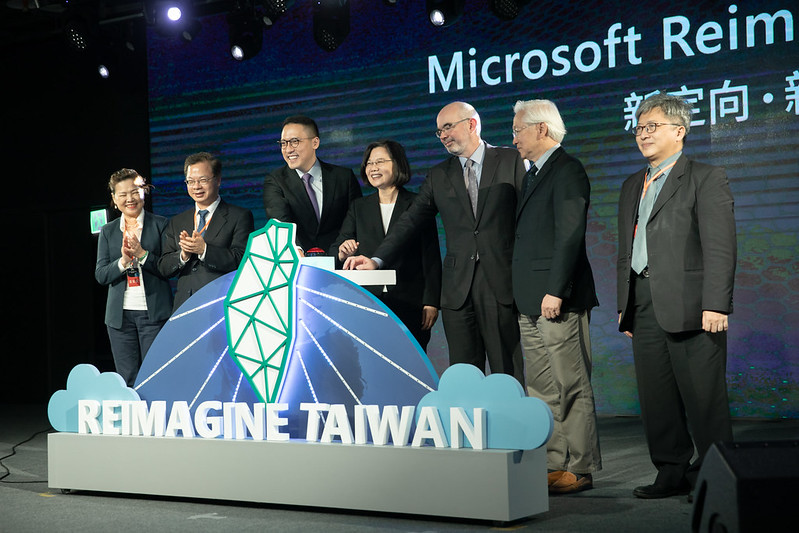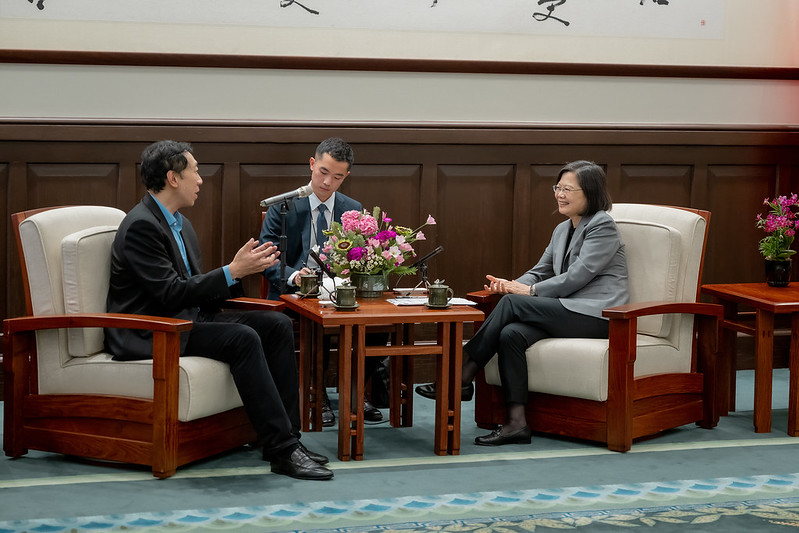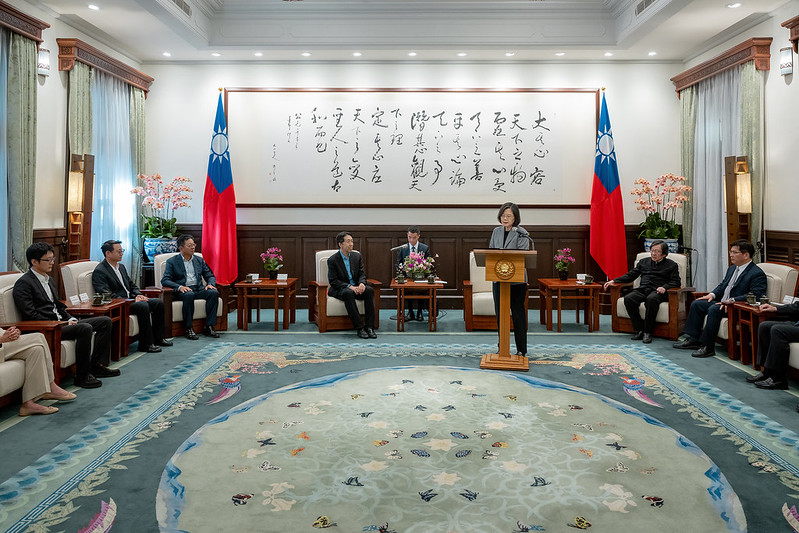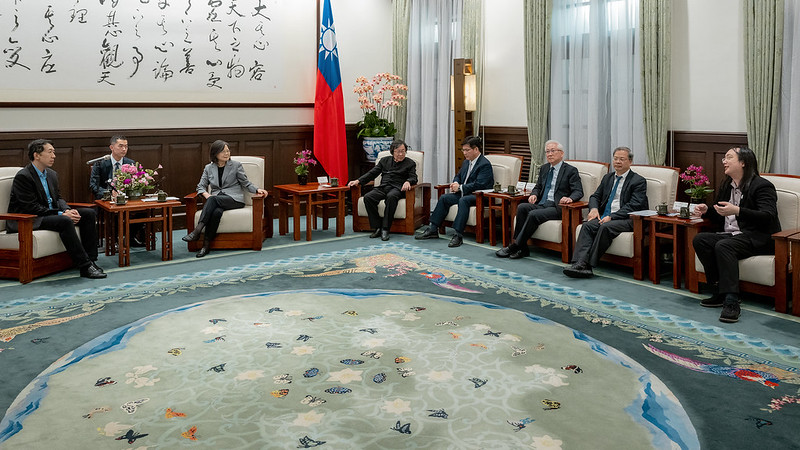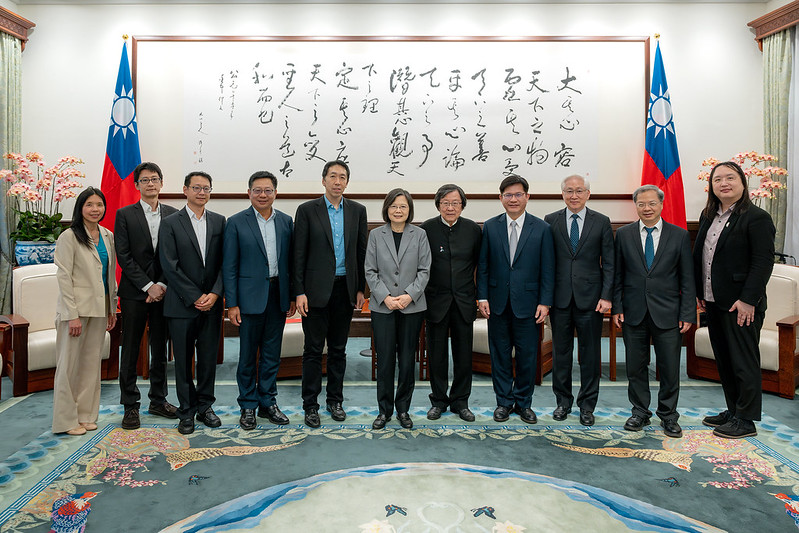News & activities
 News releases
News releases
On the afternoon of September 27, President Tsai Ing-wen met with Stanford University Professor Andrew Ng. In remarks, President Tsai stated that Taiwan has an excellent foundation in semiconductors and smart manufacturing, and expressed hope that Taiwan can accelerate the development of artificial intelligence and its associated applications, so that we can continue to upgrade and transform our industries. Stating that the government will give its full support to the development of AI technologies, the president expressed her belief that Taiwan has what it takes to develop a comprehensive AI ecosystem and become an international AI powerhouse.
A translation of President Tsai's remarks follows:
The last time Professor Ng visited Taiwan was in 2019, before the global pandemic started. He was here at the invitation of the Ministry of Science and Technology to give a lecture on the theme "What's next in AI." Four years later, the AI wave has truly arrived and the whole world is paying close attention to this issue. Professor Ng, let me welcome you to Taiwan again. Through this visit, I hope that you can build closer connections with industry and academia in Taiwan to discuss and explore more potential applications for AI.
Technological advances have made it easier to put AI into practice. AI can now play a role in finding solutions to the many issues faced by modern society in areas such as climate change, healthcare, and traffic safety. As Professor Ng has said, AI is transforming almost every industry. It is for this reason that Taiwan hopes to accelerate the development of AI and its associated applications, so that we can continue to upgrade and transform Taiwan's industries and cultivate more talent, making Taiwan a smart, digital nation.
As AI applications grow increasingly complex, the chip and information and communications technology industries, among others, will have to adapt. AI has also become an important driver for the future of the semiconductor industry. And with the geopolitical changes of recent years, countries around the world are seeking a reliable supply chain. I am confident that building on our solid foundation of talent and R&D, Taiwan will maintain its position of global prominence in this area.
Moving forward, Taiwan will work with like-minded partners, using technology to strengthen social trust, safeguard and enhance our democracy and freedoms, and reduce any potentially negative impacts of AI.
I also want to thank Taiwania Capital CEO David Weng (翁嘉盛) for his longstanding efforts to facilitate Taiwanese industries' global engagement and for his keen interest in AI. Thank you for hosting the Navigating the Future of AI forum and for inviting Professor Ng to visit Taiwan to explore the trends in and challenges of AI with us.
Taiwan has an excellent foundation in semiconductors and smart manufacturing as well as outstanding talent in AI. The government is also giving its full support to the development of AI technologies. I believe that Taiwan has what it takes to develop a comprehensive AI ecosystem. The world can count on Taiwan to become an international AI powerhouse. I once again welcome you, Professor Ng, and I wish you a successful and rewarding visit to Taiwan.
